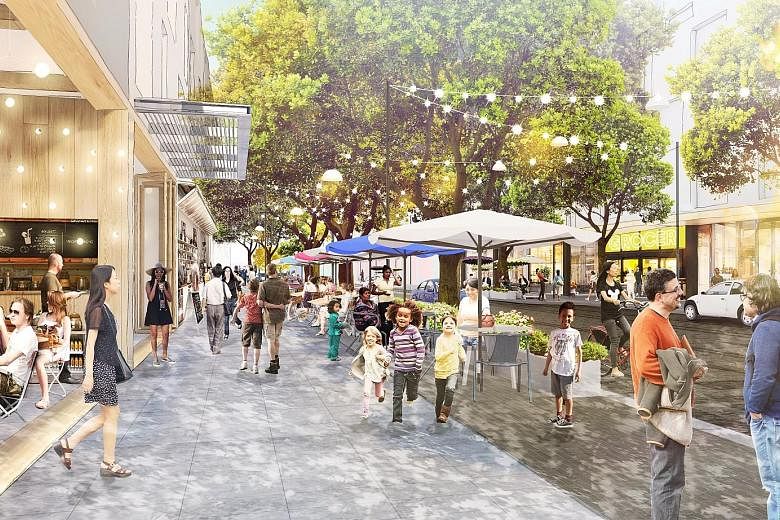MENLO PARK (California) • In just a few years, Facebook built a virtual community that linked more than two billion people, an achievement with few precedents. Now the social network is building a real community, the kind you can walk around in.
It is a project with many precedents in American history, quite a few of them cautionary tales about what happens when a powerful corporation takes control of civic life.
Mr John Tenanes, Facebook's vice-president for real estate, says the company has a dual mission: "We want to balance our growth with the community's needs."
Willow Village will be wedged between the Menlo Park neighbourhood of Belle Haven and the city of East Palo Alto, both heavily Hispanic communities that are among Silicon Valley's poorest.
Facebook is planning 1,500 apartments and has agreed with Menlo Park to offer 225 of them at below-market rates. The most likely tenants of the full-price units are Facebook employees, who receive a five-figure bonus if they live near the office.
The community will have 3ha of parks, plazas and bike-pedestrian paths open to the public. Facebook wants to revitalise the railway running alongside the property and next year will finish a pedestrian bridge over the expressway. Mr Tenanes contemplates the audacity of building a city.
"It's a good thing, right?" he says.
It depends on how it goes. When the project was announced last summer, critics dubbed it Facebookville or, in tribute to company co-founder Mark Zuckerberg, Zucktown.
But Facebook's ambitions are now confronting a more urgent problem. If its image is permanently sullied by the furore over Cambridge Analytica, the data firm hired by President Donald Trump's 2016 election campaign, Zucktown will falter before it is finished.
A few miles down the 101 highway, another new civic-corporate partnership is under way in the city of Mountain View. Google plans a 600,000 sq ft office building with a roof that melts up into soft peaks, kind of like a meringue. It will have stores, cafes, gardens and even a space for theatrical performances, as well as a place for consumers to test-drive new Google technology.
The search company will build 5,000 homes on its property under an agreement brokered with Mountain View in December.
Similar projects being contemplated across Silicon Valley could, at a minimum, have consequences for the start-up culture that transformed fruit orchards into the world's greatest tech hub.
Silicon Valley was built by engineers jumping from company to company. That drove the innovation that sped the rise of some firms and hastened the demise of others.
As workers begin to literally live at the office, they will inevitably be more beholden to bosses who also collect the rent. After all, it is much harder to find a place to live in Silicon Valley than a new job.
Turnover may slump and so might the turnover in ideas.
The notion of communities run by and for companies has been a fixture in the United States almost from the beginning. In the textile town of Lowell, Massachusetts, in 1846, the mill clock slowed down to lengthen shifts and then sped up at night when the workers were off, according to one contemporary reformer.
Milton Hershey began building a chocolate factory in the middle of Pennsylvania in 1903 and then surrounded it with a community where, he pledged, there would be "no poverty, no nuisances, no evil".
In return for surrendering certain rights - such as local elections and privacy - workers in the town of Hershey got medical coverage, a free junior college, parks and a zoo.
By the 1960s, the era of the company town in America was fading, even as countries such as China picked up the notion. Zhengzhou is a remote Chinese city that was once impoverished and now has 350,000 workers building iPhones.
NYTIMES

